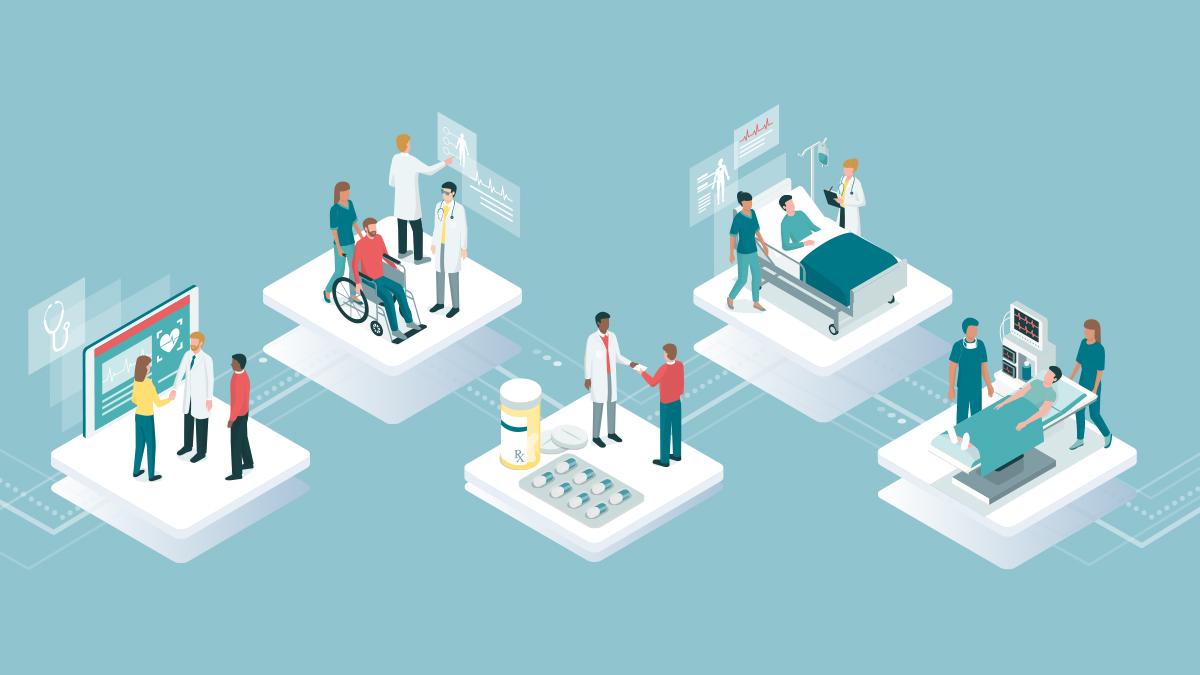Abbott survey finds digital divide for patients, physicians

Abbott has released its latest instalment of the company’s multi-year Beyond Intervention series of global healthcare market research, designed to examine and uncover challenges that arise along the patient journey in those people living with cardiovascular disease – specifically, patients with peripheral artery disease (PAD) and coronary artery disease (CAD) – as well as to identify opportunities for patient care improvement, including feedback on digital components of care.
The latest report – Abbott’s third – puts forth the findings from a global survey of patients, physicians, and healthcare leaders, revealing the challenges that have resulted from healthcare providers’ systemic lack of adoption of consumer technologies, as well as a lack of post-surgical therapy compliance and consumer dissatisfaction when it comes, titularly, to beyond intervention.
Abbott surveyed 2,056 stakeholders, including 1,350 patients with either CAD or PAD, 499 physicians, and 207 healthcare leaders between March and May last year. Respondents to the survey, which was conducted online, represented 16 countries: United States, Canada, Brazil, Mexico, Chile, United Kingdom, France, Germany, Italy, Spain, China, Japan, India, Australia/New Zealand, South Africa, and Saudi Arabia.
The report also identifies key opportunities that physicians, healthcare leaders, and health technology companies might consider in order to improve the patient care journey, including providing a comprehensive care experience to increase patient satisfaction, reducing barriers to post-intervention care, driving better experience and outcomes, and involving patients in shared decision-making.
It was found that nearly 60% of patients and half of all healthcare leaders would trust artificial intelligence (AI) to help diagnose or recommend the best treatment, but only just over a third of physicians agreed (c. 35%). Similarly, patients were found to consider access to an online patient portal and use of digital health tools of more importance to their overall experience (65% and 62%, respectively) than physicians did (38% and 35%, respectively).
Only 6% of patients reported that their doctors recommended inputting their symptoms or tracking their medications via a mobile phone or tablet.
In addition to underscoring the disparity between patient, physician, and healthcare leader perceptions of the efficacy of digital technology in the care delivery system, what the report also made clear is that most patients surveyed (90%) believe that the two most important factors in navigating their care journey are, firstly, a clear understanding of the next steps when it comes to management of their disease, and secondly, having all questions they might have fully answered.
Additionally, over 40% of all patients surveyed reported finding motivation and time to manage their condition post-procedure challenging, while a similar proportion noted ongoing costs related to treatment as being difficult. Furthermore, lack of education and awareness of the progressive nature of cardiovascular diseases were found to be a significant barrier to post-procedural care and adherence.
Dr Nick West, chief medical officer and divisional vice president of medical affairs at Abbott’s vascular business, said: “Increased penetration of smart devices, wearables, and remote self-monitoring tools not only provide granular data on recovery, progress, and adherence, but critically drive patient engagement and, therefore, behavioural change.”
West continued: “MedTech’s role is to find synergies between how patients and physicians prefer to access information to facilitate positive experience and outcomes for all patients.”
Dr Jennifer McCaney, executive director at UCLA Biodesign, noted: “Those who work at the intersection of healthcare and technology must straddle the digital divide and work toward greater use of technology in care.”
She added: We cannot assume that every person or patient has the access to or the means to interact with health systems or care teams in the same way. Stakeholders across the care journey – from product manufacturers to payers and providers alike – need to empower patients with accessible technologies that better the patient experience.”
Separately, Abbott is a big player in the wearable glucose-monitoring sector, and last year started working on a new device that will measure both glucose and ketones, potentially serving as a warning system for a life-threatening complication of diabetes known as ketoacidosis.
And digital innovation is not going anywhere. This month, pharmaphorum covered the inaugural VITA Accelerator demo day, discussing with its senior programme manager and managing director the ethos behind the accelerator and the future of digital health start-ups in Italy and beyond. Listen here for insight on the latest develops in this space.













